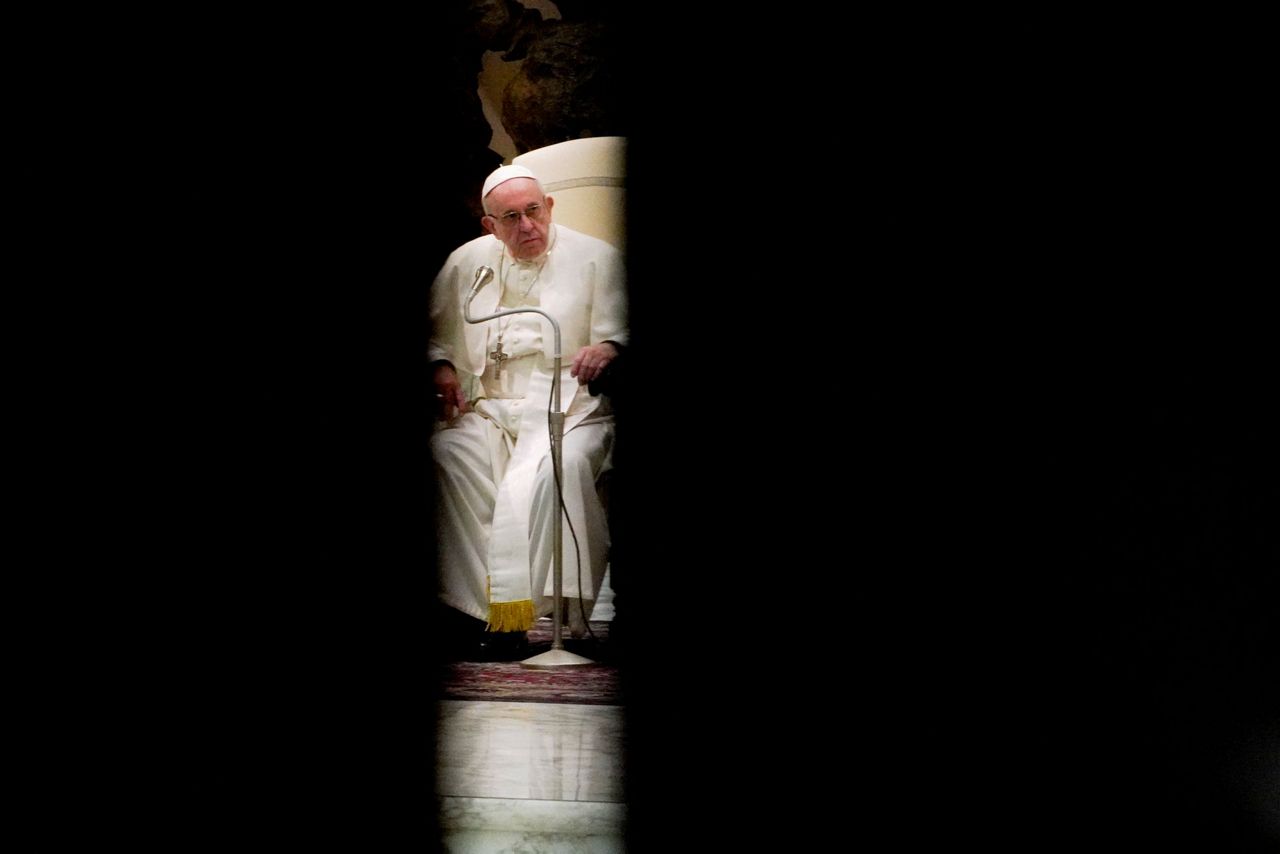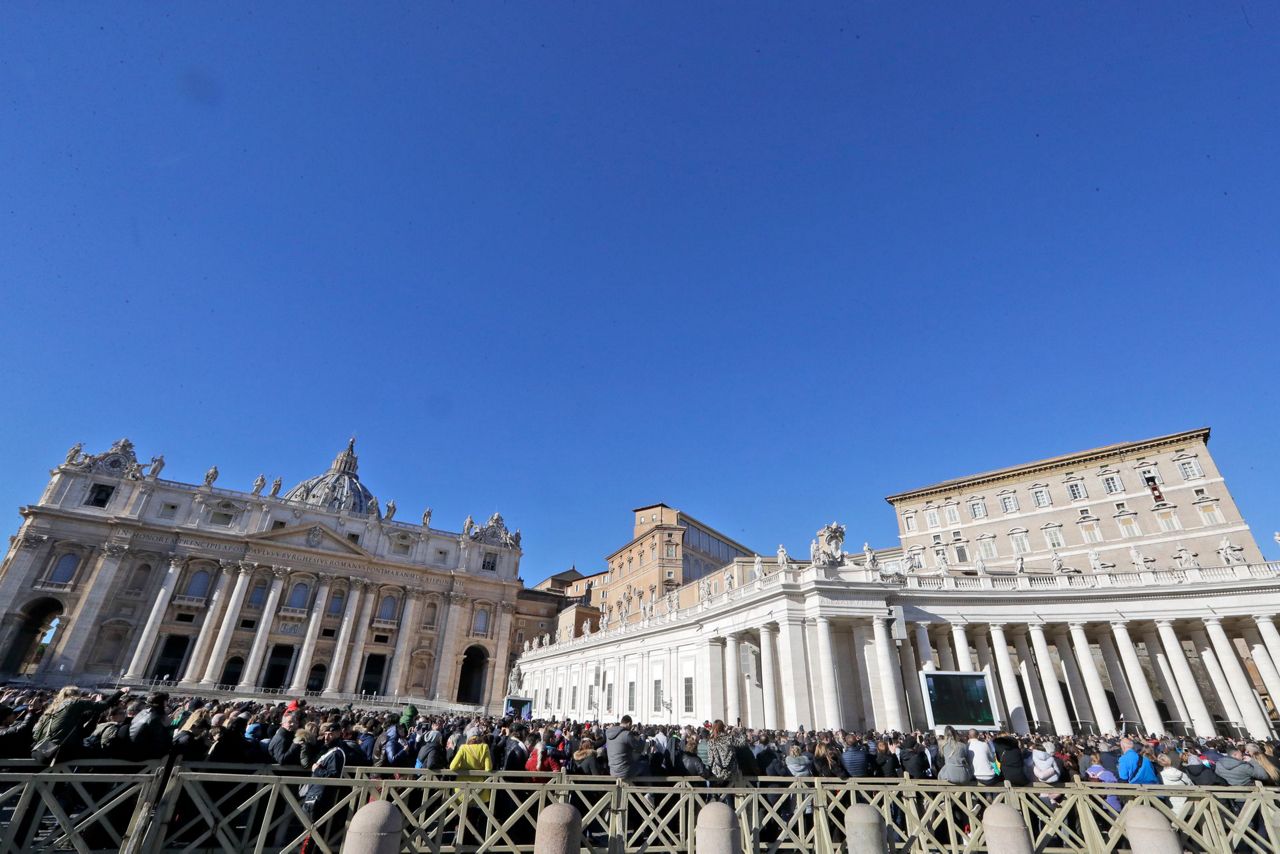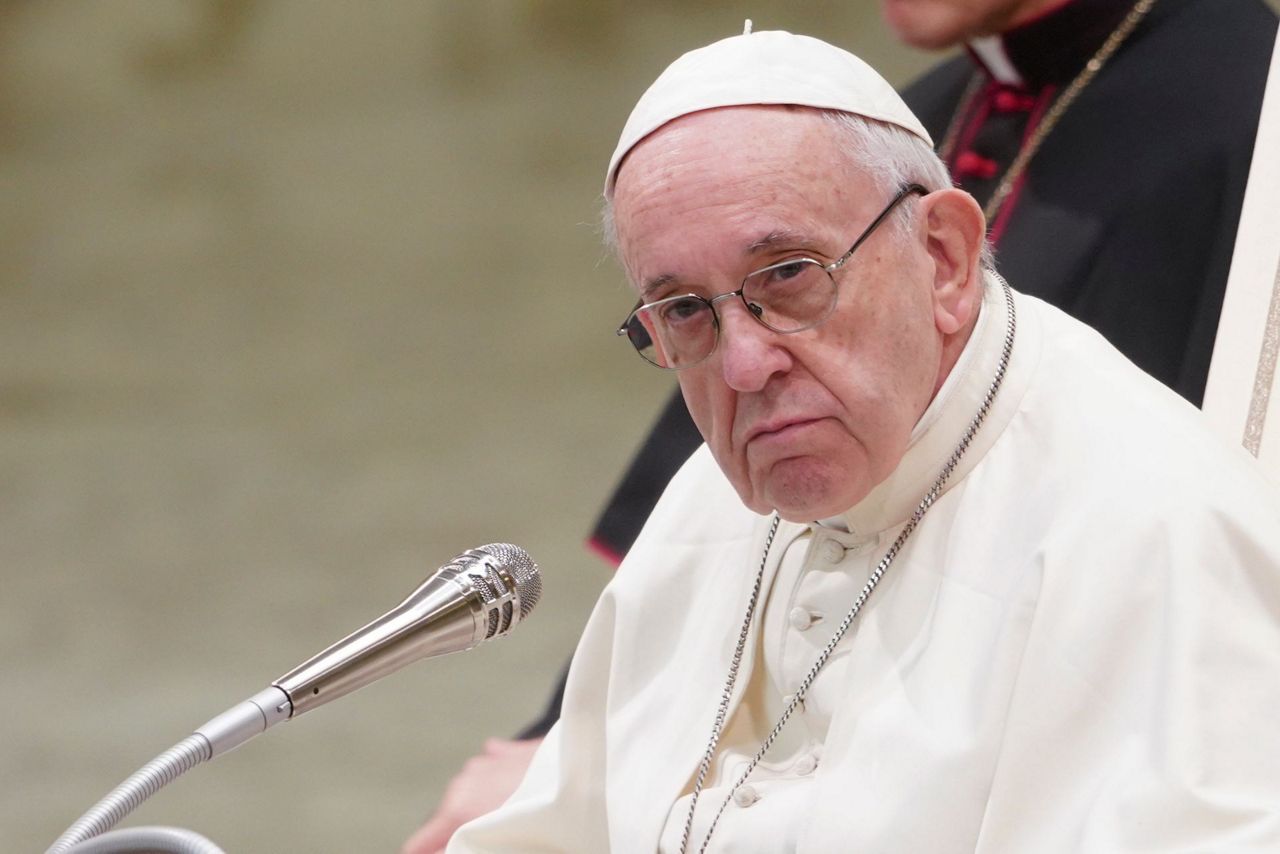BUENOS AIRES, Argentina (AP) — The Vatican has confirmed that an Argentine bishop, who resigned suddenly in 2017 for stated health reasons and then landed a top administrative job at the Holy See, is under preliminary investigation after priests accused him of sexual abuse and other misconduct.
The case could become yet another problem for Pope Francis, who is already battling to gain trust from the Catholic flock over his handling of sex abuse and sexual misconduct, stemming in particular from the scandal of ex-Cardinal Theodore McCarrick.
In a statement to The Associated Press, Vatican spokesman Alessandro Gisotti stressed that the allegations against Argentine Bishop Gustavo Zanchetta only emerged in recent months, nearly a year after Francis created the new position for him as "assessor" of the Holy See's office of financial administration.
At the time of his resignation, Zanchetta had only asked Francis to let him leave the northern Argentine diocese of Oran because he had difficult relations with its priests and was "unable to govern the clergy," Gisotti said. Pending the preliminary investigation into allegations of sexual abuse underway in Argentina, the 54-year-old Zanchetta will abstain from work at the Vatican, he said.
Francis' standing would take another hit if he personally intervened to help out a bishop from his native Argentina — finding a job for him during a Vatican hiring hold-down — and the man later turned out to have credible allegations of misconduct against him.
Zanchetta's hasty departure from Oran on July 29, 2017 was mired in mystery. He didn't celebrate a farewell Mass, as might be expected, and he issued a cryptic statement saying he had been suffering a "health problem" for some time, had just returned from the Vatican where he presented his resignation to Francis, and needed to leave immediately for treatment.
A statement issued the same day from his vicar general said Zanchetta had already left Oran, a deeply conservative and poor diocese near Argentina's northern border with Bolivia that Zanchetta had run since Francis made him a bishop in 2013 in one of his first Argentine episcopal appointments. Zanchetta, the vicar said at the time, would be staying in Corrientes — several hundred kilometers (miles) away — as a guest of the archbishop until Francis accepted his resignation.
Often such procedures can take months, but the Vatican announced Francis had accepted it three days later, on Aug. 1.
Zanchetta then disappeared from view until Dec. 19, 2017, when the Vatican announced that he had been named assessor of APSA, the office that manages the Vatican's vast real estate and other financial holdings. The appointment immediately raised eyebrows, but Zanchetta appeared nevertheless to have settled in well at APSA, and Gisotti said Francis appointed him because he had an established capacity for administrative management.
It wasn't immediately clear what Zanchetta's health problems were at the time of his resignation, but by all indications there were grave problems with his leadership and divisions within the diocesan clergy.
"The reason for his resignation is linked to his difficulty in handling relations with the diocesan clergy, some of which were very tense," Gisotti said. "At the time of his resignation there were accusations against him of authoritarianism, but there were no accusations of sexual abuse against him."
Zanchetta spent a period of time in Spain before joining APSA.
The allegations were leveled internally in recent months, Gisotti said, and last week the provincial newspaper in Salta, El Tribuno, reported that three priests had brought accusations against him to the Vatican's ambassador, or nuncio, in Buenos Aires. The newspaper said the priests had lodged accusations of abuse of power, economic abuse and sexual abuse inside the seminary.
It wasn't immediately clear how Zanchetta responded to the accusations.
The current bishop of Oran, which is in Salta province, is still gathering evidence and testimony and will forward it to the Vatican, Gisotti said. If the allegations are deemed credible, the case will be forwarded to Francis' special commission for bishops — an ad hoc group of canon lawyers who have been examining allegations of misconduct against bishops.
The issue of sexual abuse within seminaries has risen to the forefront in the scandal over McCarrick, the retired archbishop of Washington. Francis removed McCarrick as a cardinal in July after a U.S. church investigation determined that an allegation that he fondled an altar boy in the 1970s was credible. After the allegation became public, several former seminarians came forward to report they had been abused or harassed by McCarrick and pressured to sleep with him.
Francis became implicated in the McCarrick scandal after a former Vatican ambassador accused him of knowing of McCarrick's penchant for seminarians, and rehabilitating him anyway from sanctions imposed by Pope Benedict XVI. Francis hasn't responded.
Zanchetta had opened his own seminary in Oran in 2016 with six seminarians. According to El Tribuno, the St. John XXIII seminary is due to close soon.
The diocese hasn't responded to questions about Zanchetta's departure or the status of the investigation against him. It has, however, issued a statement responding to media reports that the priests who lodged complaints against Zanchetta had suffered retaliation. The new bishop of Oran said the priests had been transferred to respond to the pastoral needs of the faithful.
"Knowing the gravity of all types of abuse, the bishop is available to anyone who would like to present a complaint to begin the corresponding procedure for canonical justice, while recalling the right of all victims of abuse to seek ordinary justice," via civil authorities, the statement said.
___
Nicole Winfield reported from San Vigilio, Italy.
Copyright 2019 The Associated Press. All rights reserved. This material may not be published, broadcast, rewritten or redistributed.





